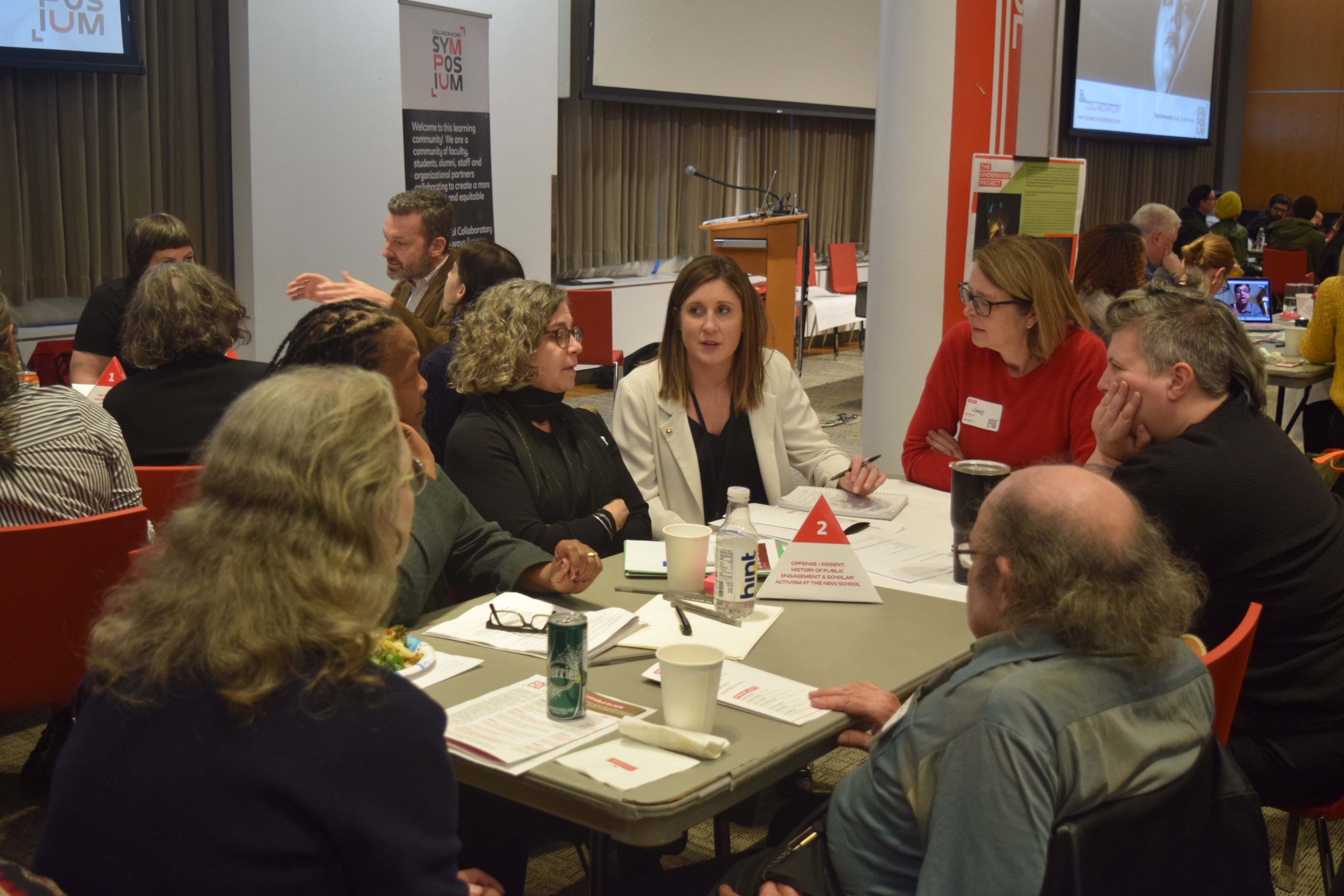What would a decolonized university look like? This is the question New School professor of history Julia Foulkes and long-time New School staff member alumna Thelma Armstrong (now retired) asked at their roundtable discussion during Collaboratory Centennial Symposium on November 16, 2019. Foulkes and Armstrong opened the discussion with a brief discussion on scholar activism at The New School.
“The concept of social activism, one could argue, began in 1850 with Phyllis Wheatley,” said Armstrong, a historian and Phillis Wheatley scholar. “She is an organic scholar, she’s self taught, and she fought for inclusion and freedom.”
Using these lessons as a starting point, Foulkes and Armstrong opened the table up to conversation and discussed ways the university could improve its work in creating a more just, equitable, and inclusive place–not only for students, but for the surrounding community as well.
“We talked about this divide between myth and reality at The New School,” Foulkes said. “We asked, how do we reframe that so that we can use our ideals as a way in which we hold the institution accountable?”
While the group found that The New School still has a long way to go before considering itself decolonized, it came up with four key takeaways to creating a university where all felt welcome.
Foulkes presented the group’s four key findings:
- Sharing space
“Recognizing that space is a fundamental to questions of colonization and that should really be rethought in terms of how we share this space with others. Particularly how we share space with the much wider community than that which is identified by a New School ID. We’re trying to figure out how we bring in and offer space to Lenape rights or Native American rights groups, or African American rights groups. We want to be able to offer our space freely to other organizations and peoples working on these kinds of acts or reparations.”
- Security
“We also think that we need to change the security state and use practices of criminal justice reform to have conversations around questions of safety so that we can actually have people come in our buildings and have them feel as though they belong here.”
- Create opportunities for students, staff, and the community to share concern
“We also think there should be regular listening opportunities. In our search for a new president we held listening tours–they were very powerful in terms of surfacing different issues across the community. Faculty, upper leadership, and most importantly, the board of trustees were all present at those listening tours. We know how influential that was that board members heard the concerns of the university. That needs to be instituted regularly.”
- Reduce the stigma around student needs
“On our syllabi we should be putting [food] pantry hours, the housing office hours, and information and FAFSA deadlines, reducing the stigma around these needs that students have and making sure that all of those issues are communicated across our syllabi to everyone.”
This article was written by Kelly McHugh-Stewart.

